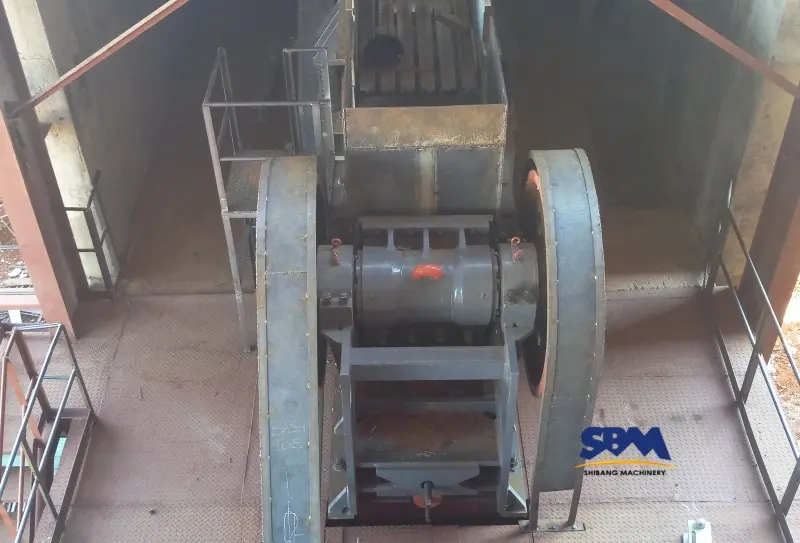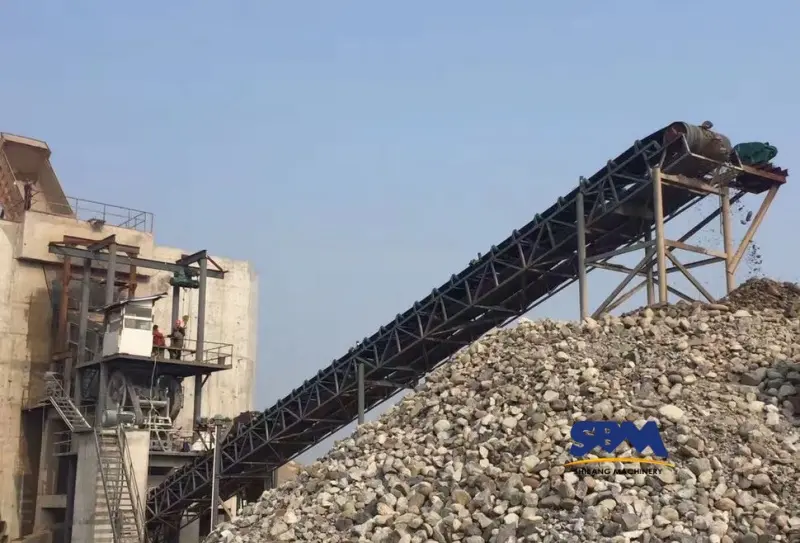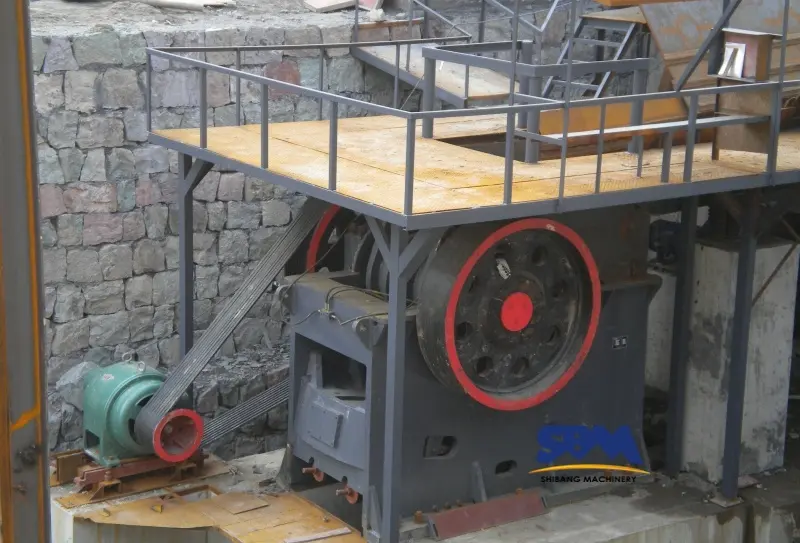E-mail: [email protected]
Comment la mâchoire Crusher vs. Autres équipements d'écrasement primaire?
Des ceintures de minerai de fer en Australie aux sables pétroliers du Canada, broyeur à mâchoire et (ou vs.) Un autre équipement d'écrasement principal détermine le succès opérationnel. Tandis que les concasseurs gyratoires et à impact ont des rôles de niche, Les broyeurs de mâchoire restent le Fondation inébranlable de l'exploitation pour les matériaux durs. Analysons leurs avantages du monde réel à travers des données opérationnelles et des études de cas inattendues.
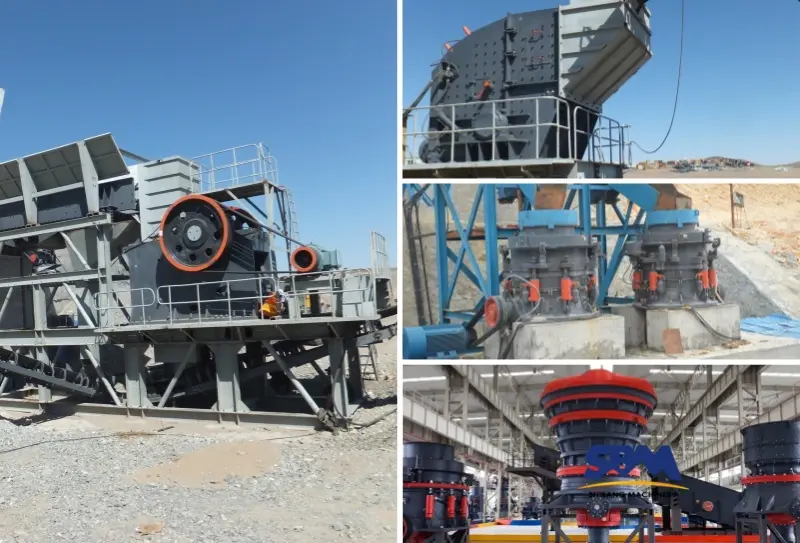
Comprendre l'équipement d'écrasement principal
L'équipement d'écrasement primaire réduit les grandes matières premières en tailles gérables pour le traitement en aval. Les types communs incluent:
- Concasseurs à mâchoires: Utilisez la force de compression via des plaques de mâchoire fixe et mobile.
- Broyeurs gyratoires: utiliser des cônes pour casser les matériaux dans un mouvement circulaire.
- Concasseurs à percussion: Utilisez des marteaux ou des barres de marteau pour casser les matériaux en tournant à grande vitesse.
Chaque type excelle dans des situations spécifiques. Par exemple, concasseurs à mâchoires (applications) Excel à Hard Rock Mining. Les concasseurs d'impact sont meilleurs pour les matériaux plus doux comme le calcaire.
Le coût caché de la sélection du concasseur primaire
1. À l'avance vs. Coûts à vie
UN 2023 Étude par Miningtech Analytics a comparé les concasseurs de la mâchoire et du gyratoire à travers 12 Mines de cuivre canadien:
- Concasseurs à mâchoires: 1.2MinitialCost, 180Entretien k / an
- Broyeurs gyratoires: 2.8MinitialCost, 420Entretien k / an
Perspicacité clé: Les unités de mâchoire ont économisé 1,3 million de dollars par cycle de vie de 5 ans malgré une capacité horaire plus faible (600 contre 1,200 TPH).
2. Les exigences de mobilité
Le LNS de Norvège Gruppen a révolutionné les sites miniers temporaires à l'aide de broyeur de mâchoire mobile:
- 48-Configuration de l'heure VS 3 semaines pour les systèmes gyratoires fixes
- Efficacité énergétique: 22L / H vs 55L / H pour les concasseurs à impact équivalent
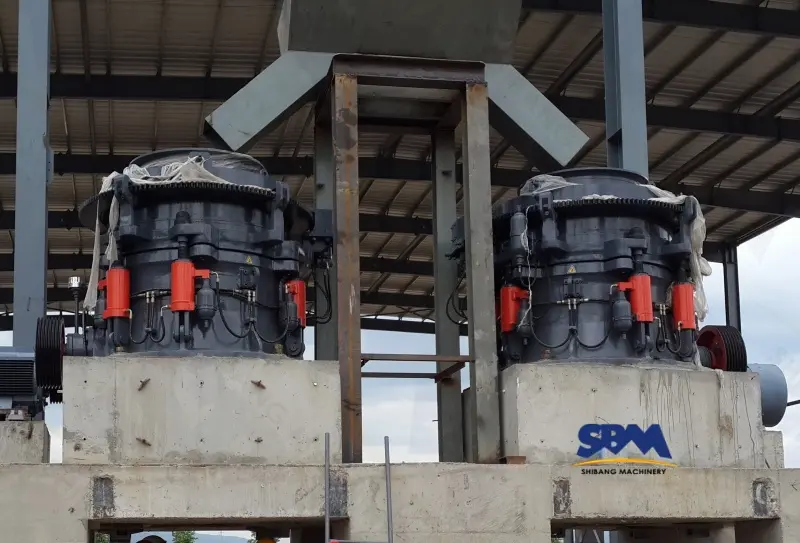
Crushers de la mâchoire vs. Concasseurs à cône: Un affrontement des titans
1. Principe de fonctionnement
- Broyeurs de la mâchoire: Compter sur la compression pour casser les matériaux.
- Concasseurs à cône: Utilisez le manteau rotatif et les doublures concaves pour appliquer la pression et la force de cisaillement.
2. Manutention des matériaux
- Concasseurs à mâchoires exceller avec dur, matériaux cassants (Par exemple, quartz, basalte).
- Rupture de cône sont meilleurs pour les rochers durs moyens aux durs (Par exemple, calcaire, dolomie) et produire des sorties plus fines.
3. Comparaison des coûts
Tandis que les broyeurs de cône offrent des ratios de réduction plus élevés, Leurs coûts initiaux et leurs dépenses d'entretien sont plus élevés. Par exemple, Un broyeur à cône dans les coûts de minerai de fer en Australie 40% Plus pour fonctionner chaque année qu'un concasseur à mâchoire, Malgré sa sortie supérieure.
Crushers d'impact vs. Concasseurs à mâchoires: Vitesse vs. Force
1. Performance
- Concasseurs à percussion: Utilisez des marteaux rotatifs pour briser les matériaux grâce à l'impact. Idéal pour plus doux, Matériaux fibreux comme le calcaire ou le charbon.
- Broyeurs de la mâchoire: Mieux pour le dur, Matériaux denses nécessitant une forte compression.
2. Applications
Dans le secteur minier d'Australie-Occidentale, Les concasseurs d'impact sont préférés pour le traitement du charbon, où la forme des particules est importante. Entre-temps, Les broyeurs de la mâchoire manipulent l'écrasement initial de la roche dure avant de nourrir les concasseurs secondaires.
3. Inconvénients
Les concasseurs d'impact génèrent plus de poussière et de bruit, Soulever des préoccupations environnementales. Concasseurs à mâchoires, Bien que plus calme, nécessitent un remplacement périodique des plaques de mâchoire.
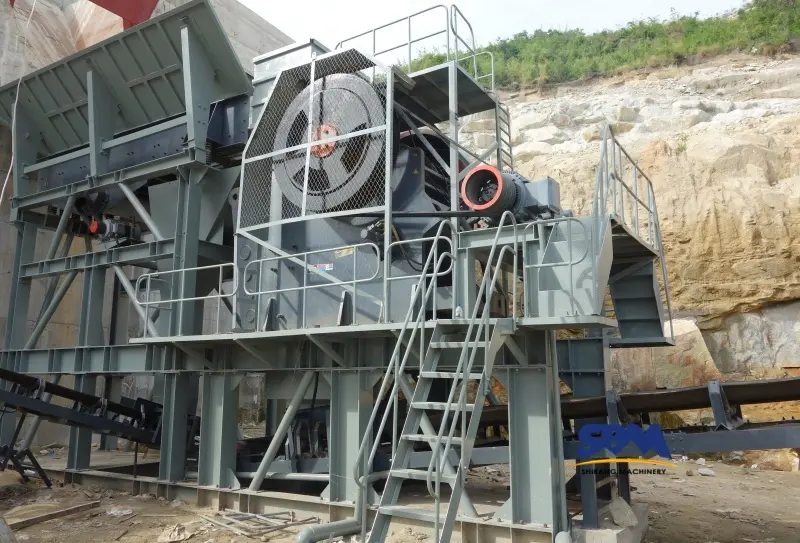
Crusher à mâchoire vs. Alternatives: 2 Champs de bataille inattendus
Bataille 1: Traitement des matériaux humides
Sagesse conventionnelle: Les concasseurs d'impact dominent ici
Réalité: Les concasseurs de mâchoire de De Beers en Afrique du Sud ont modifié la mâchoire avec des assiettes chauffées pour traiter la kimberlite en diamant à 18% teneur en humidité.
Piratage technique:
- Ajout d'inserts en carbure de tungstène sur les plaques de mâchoire (un de Composants de concasseur à mâchoire clés)
- Réduction des temps d'arrêt de 6 heures / jour pour 45 minutes
Bataille 2: Écrasement de roche ultra-dure
La mine Codelco Andina du Chili a testé trois concasseurs sur le porphyre cuivre (320 Dureté MPA):
| Métrique | Concasseur à mâchoires | Giratoire | Concasseur à percussion |
|---|---|---|---|
| Coût de la pièce de l'usure | $0.18/tonne | $0.31/tonne | $0.42/tonne |
| Consommation d'énergie | 2.1 kwh / t | 1.8 kwh / t | 3.4 kwh / t |
Conclusion: Jaw Crushers a offert le meilleur coût total malgré une consommation d'énergie plus élevée.
Quand choisir des alternatives: Exceptions basées sur les données
Cas 1: Sands d'huile à volume élevé (Alberta, Canada)
La mine Aurora de Syncrude utilise des concasseurs gyratoires pour:
- Continu 14,000 Traitement TPH
- Protection automatisée de fer à tramp
Pourquoi pas les broyeurs de la mâchoire?
- Nécessite 6+ unités pour une capacité équivalente
- Coûts de maintenance plus élevés par tonne à grande échelle
Cas 2: Recyclage du béton urbain (Tokyo, Japon)
Crushers d'impact mobile de Taisei Corporation:
- Processus 500 TPH des déchets de démolition mixte
- Les séparateurs magnétiques suppriment automatiquement les barres d'armature
Limitation de broyeur à la mâchoire:
- Pas de séparation intégrée pour les contaminants
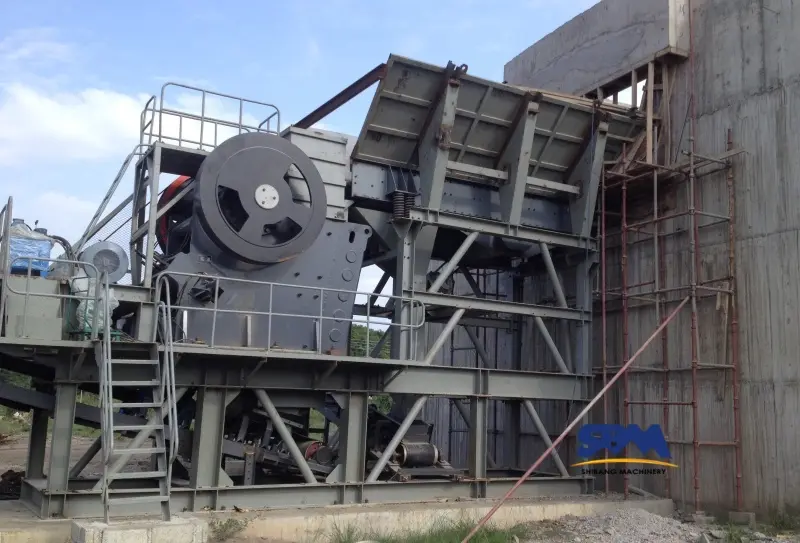
Études de cas mondial: Crushers de la mâchoire en action
Cas 1: Traitement du minerai de fer en Australie
Une opération d'extraction de Pilbara a remplacé ses concasseurs gyratoires vieillissants avec Crushers de la mâchoire SBM. Le résultat? UN 20% Réduction des coûts énergétiques et maintenance rationalisée en raison des composants modulaires.
Cas 2: Projet de minerai de fer Marampa (Sierra Leone)
Un concasseur gyratoire de 900 tonnes a été intégré à des broyeurs de mâchoire pour traiter le minerai de fer de haute qualité. Les broyeurs de la mâchoire ont géré le concassage primaire, Réduire la taille de l'alimentation de 1,2 m à 150 mm, Assurer un traitement en aval en douceur.
Cas 3: Carrière des îles Caïmans
La carrière d'IronShore utilise un concasseur à mâchoire personnalisé pour traiter le calcaire dur. Sa conception robuste minimise les temps d'arrêt, critique pour les opérations îles à distance.
Au-delà de la fiche de spécification
Tandis que la mâchoire concasse dominer les scénarios du hard rock, Les opérateurs intelligents mélangent l'équipement:
- Utilisez des unités de mâchoire pour une réduction primaire
- Ajouter Composants des concasseurs d'impact pour la mise en forme finale
- Intégrer des unités mobiles pour des opérations flexibles
Le véritable avantage réside dans l'adaptabilité des Crushers à la mâchoire - des plaques chauffées dans les mines de diamant à l'entretien dirigé par l'IA dans les opérations de cuivre. Alors que l'exploitation minière fait face à des minerais plus durs et des marges plus serrées, Cette polyvalence cimente leur rôle de fondement inébranlable de l'exploitation minière.
Bureau du siège social
WhatsApp:+8615225176731
E-mail: [email protected]
Adresse: Non. 1688, Gaoke East Road, Nouveau quartier de Pudong, Shangai, Chine.
Site Internet: https://www.mill-sbm.com/
Contenu des articles
Messages récents
- Traitement du minerai d'or: Jaw Crusher EfficiencyEffective gold ore processing hinges on precise crushing operations, where jaw crushers convert rugged deposits into optimized feedstock. Discover how to fine-tune these machines for peak productivity without compromising worksite…
- Gravier de la rivière écrasant avec des brasseurs de mâchoireA cornerstone of modern construction, river gravel delivers unmatched toughness and adaptability for roads, béton, and erosion control. Yet its rugged, irregular nature demands machinery built to endure—enter jaw crushers.…
- Comment choisir la bonne taille de broyeur de mâchoire pour votre industrie?La sélection de la bonne taille de broyeur de mâchoire n'est pas un jeu de devinettes - c'est une science enracinée dans la dynamique des matériaux et le calcul opérationnel. Pour les industries, de l'exploitation dure-rock au recyclage du béton urbain, Même un…

